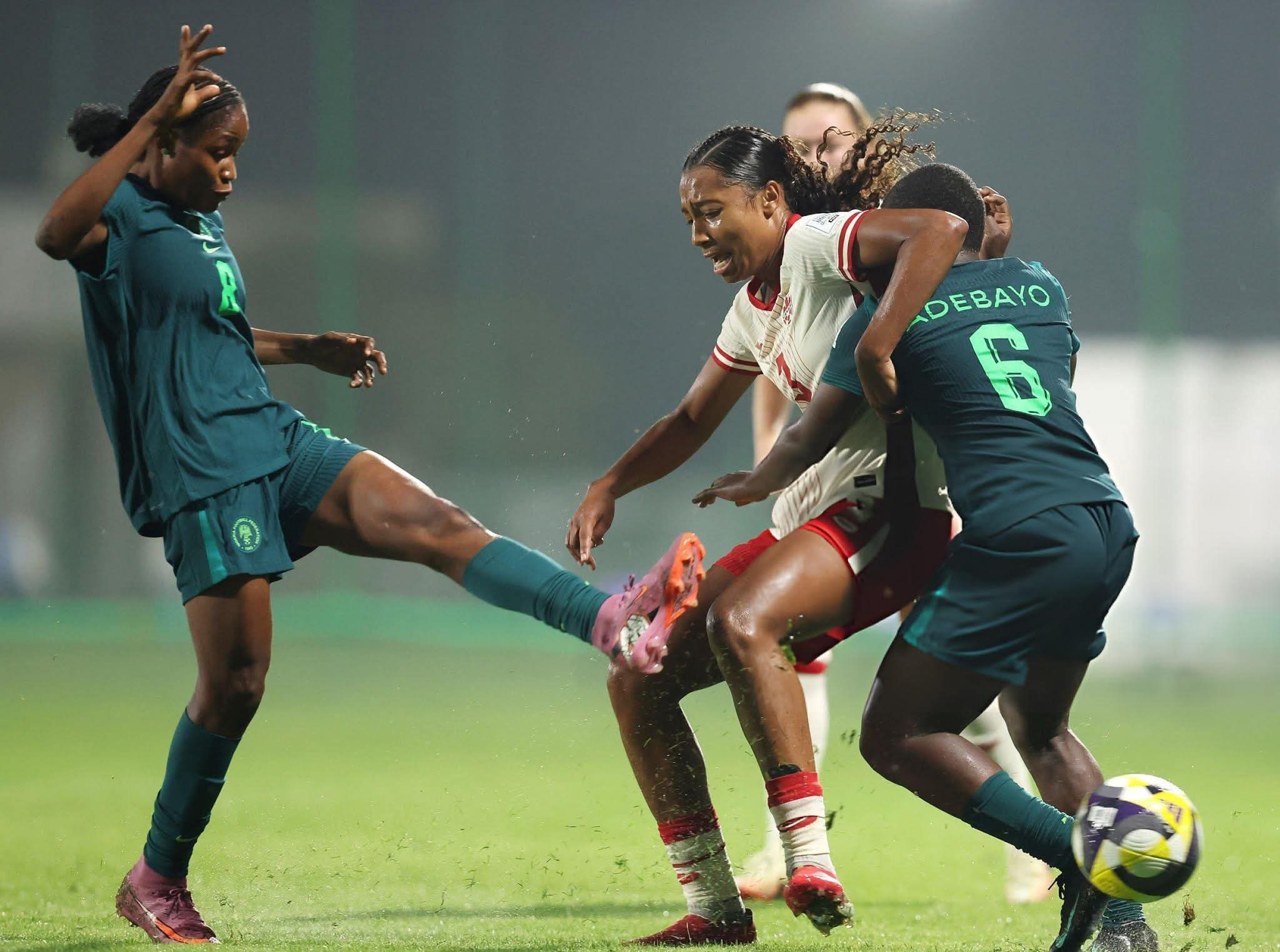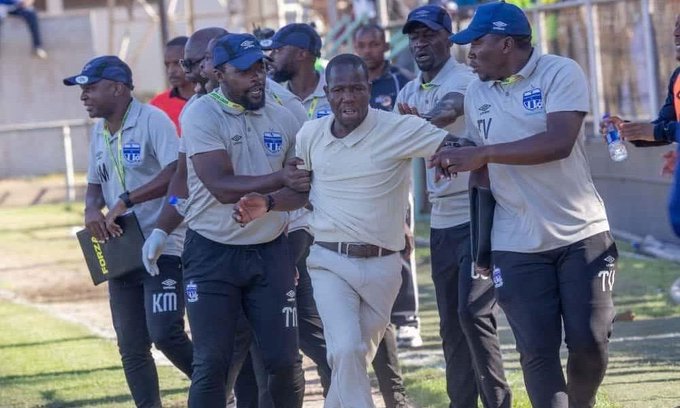- by Niyi Busari ,
- Jan 06, 2019
Tactical Analysis: Five Coaching Decisions That Undermined Nigeria’s Flamingos In 4–1 Loss to Canada
-
- by Niyi Busari,
- Oct 20, 2025
- in World Cup

Tactical Analysis: Five Coaching Decisions That Undermined Nigeria’s Flamingos In 4–1 Loss to Canada
By Niyi Busari
The Flamingos began their 2025 FIFA U-17 Women’s World Cup campaign on a disappointing note, falling 4–1 to Canada in their Group D opener in Salé, Morocco, on Sunday night, BSNSports.com.ng reports.
The result marks a difficult start for head coach Bankole Olowookere, who guided the team to a historic third-place finish at the previous edition of the tournament.
While individual performances and defensive lapses contributed to the heavy defeat, a closer tactical analysis highlights five key decisions by Coach Olowookere that played a significant role in the outcome.
1. Poor Response to Canada's Tactical Adjustments
Despite a relatively balanced first half, Canada’s coach introduced three substitutions that altered the team’s shape and tempo. Nigeria failed to respond effectively. The Flamingos did not adapt to the increased pace and tactical variation introduced by Canada, which ultimately tilted the game heavily in their opponent’s favour.
2. Defensive Vulnerability Left Unaddressed
Nigeria’s backline appeared unsettled and vulnerable throughout the match. Once Canada advanced the ball into midfield, they faced minimal resistance before breaching the Nigerian defence. There was a clear lack of coordinated pressing or defensive cover, allowing Canada too much freedom in dangerous areas.
3. Rigid Formation Exposed Nigeria’s Midfield
Olowookere's decision to maintain a traditional 4-4-2 formation left the midfield thin and ineffective. The system struggled to control central areas or provide the necessary support to the backline. Furthermore, the wide players were largely ineffective in transitioning play or assisting defensively, compounding the team’s structural issues.
4. Reactionary Substitutions Lacked Tactical Impact
The coach opted to make substitutions primarily in reaction to Canada’s goals, rather than as proactive changes. This reactive approach underlined a lack of tactical foresight, and the incoming players failed to alter the dynamics of the match or disrupt Canada’s growing dominance.
5. Inability to Influence Game Rhythm
As Canada gained control, they played with composure and cohesion, encountering little resistance from Nigeria. The Flamingos lacked pressing intensity, and Olowookere appeared short of tactical solutions to regain momentum. The inability to disrupt Canada’s rhythm or apply sustained pressure raised further questions about the team’s in-game management.
Next Challenge: France Await on Wednesday
Nigeria now faces a critical test in their second group match against France on Wednesday. A positive result will be essential to keep their tournament hopes alive. However, significant tactical improvements will be necessary if the Flamingos are to avoid another disappointing outing.





0 Comments:
Leave a Reply